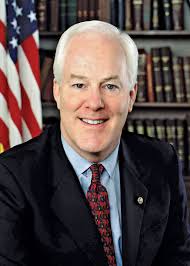The world’s largest asset manager, Blackrock, is caught in a tug-of-war between combatants on both sides of the climate and energy fight. Its travails reflect an intensifying partisan divide over renewable energy and climate risk. And it illustrates the importance of policy and politics as a driver of business behavior.
Climate activists have targeted Blackrock’s investments in fossil-fueled power plants for more than a decade. In 2017 Blackrock began to urge clients to pay more attention to the financial risks associated with climate change. That, in turn, incurred the wrath of Republican-led states, who pulled back their business from the company.
My home state of Texas, for example, responded by boycotting Blackrock and suing the company for “colluding” with other power plant asset owners to reduce coal-fired power generation. That lawsuit is ongoing, but in June of this year Texas lifted its boycott of Blackrock after the company exited trade groups focused on moving the world economy toward lower carbon emissions.
The changing political backdrop matters here. While climate change continues to pose ongoing financial risks for companies like Blackrock and its clients, those companies must also survive in a competitive environment that is shaped by GOP control of national policy.
So it is no coincidence that Blackrock continued to take steps toward ameliorating climate risks when the Biden Administration was busy promulgating rules that required disclosure of climate risks in securities filings and limits on greenhouse gas emissions from power plants. Nor is it surprising that Blackrock backtracked from that position after the 2024 election, foreseeing the repeal of both rules.
In recent years Republican voter support for a transition to clean energy has dipped, while congressional Republicans and the Trump Administration have turned sharply against the energy transition. The Dept. of Interior has offered a barrage of factually-incorrect reasons for its attacks on offshore wind and other renewables projects, citing national security risks, risks to whales, and inflated land use concerns about solar farms. And while offshore wind is indeed expensive, adding onshore wind farms and solar farms in most places will bring down electricity rates in the near term.
But in today’s post-truth political world, attacking renewables this way is probably good politics for Republican politicians, who face no real risk of losing an election to a Democrat.[1] Here in the bright red state of Texas, our impeached and indicted attorney general, Ken Paxton, is running in the GOP primary to unseat Senator John Cornyn, a staunch conservative whose major vulnerability is his relatively tepid approach to expressing contempt for Democrats and the things they want. The MAGA voters who dominate primary elections want to see their representatives demonstrate that contempt. Presumably, Cornyn will try to fill this “contempt gap” between now and the primary election. Meanwhile, Paxton burnishes his MAGA bona fides by pursuing the lawsuit against Blackrock.
But Blackrock’s defensive pivot to the right creates other risks for the company. In most other industrialized democracies where Blackrock does business, acceptance of climate science and concern over climate change is bipartisan. Climate worries continue to drive policy in those places, and in Democrat-run U.S. states and cities.
Last month a multi-billion dollar European pension fund ended its relationship with Blackrock while urging other pension funds to follow suit. Here in the U.S. at least 10 U.S. states have aggressive carbon emissions reductions laws that remain on the books. Will they try to punish Blackrock the way Texas did a few years ago? Recently California took steps to strengthen its climate disclosure rules, while a federal judge blocked a Texas effort to outlaw the very same kinds of disclosures by investment advisors.
Nor are Blackrock and investment firms alone in this political vortex. The second Trump Administration has seen backtracking on climate commitments from energy companies like BP, who could not justify the lower returns to shareholders from its pivot away from oil and gas, and the tech sector, whose insatiable hunger for 24/7 electricity seems to be testing its commitments to clean energy. They too will face partisan pulling and tugging in the market.
These flip flops are human nature. Corporations are run by people, most of whom prefer to act in socially-beneficial ways, but not if it means losing their jobs.
Meanwhile, firms in most sectors of the economy have to make decisions about energy use and climate risk. As ideological and social media continue to wind up the intense partisans who increasingly drive politicians’ behavior, more and more firms will find themselves between a rock and a hard place on climate and energy issues. — David Spence
———————————
[1] As of this writing the Cook Political Report estimates that 365 of 435 seats in the House of Representatives (84%) are solidly “safe” for one party or the other. It classifies the remaining 70 seats as either “likely” to fall to one party or the other (30 seats), “leaning” toward one party of the other (22 seats), or “toss ups” (18 seats). Of the 35 Senate seats contested in 2026, Cook puts only 3 in the ‘toss-up” category, 3 each in the “lean” and “likely” categories, and the remaining 26 in the solidly safe category. So, incumbents of both parties now protect their re-election chances by catering to the intense negative partisans who tend to vote in party primaries. And many do so by expressing contempt for the things those intense partisans fear, resent or hate: namely, the other party and the things it wants.





